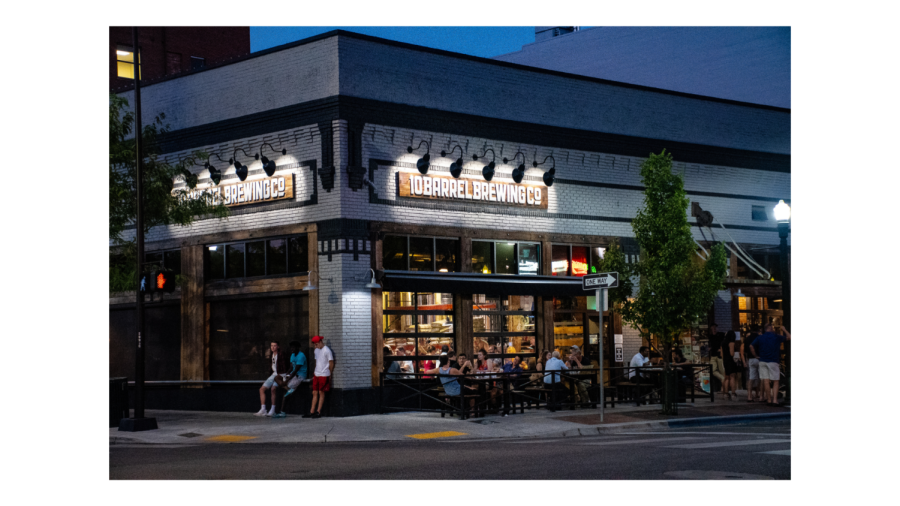The Possible Decline of Brick and Mortar Stores
May 25, 2023
An age of new technology and innovations swept through the world, fundamentally changing how humans live their day-to-day lives. The pandemic helped demonstrate that we no longer need to step foot outside our homes for our daily expenses. Whether it’s shopping, dining, or simply buying groceries, technology has allowed us access to these from the comforts of our own homes.
The effects of new technology comes to us as a rude awakening as thousands of brick-and-mortar stores close their sales. Chain stores like Bed Bath and Beyond file for bankruptcy, much like how Toys R Us did back in 2017. Walmart is closing 21 of its locations, claiming poor financial performance, and Target is doing the same. All these stores are big household names. So the question arises, why?
“They are spending too much money on the infrastructure,” Prisha Shah, a freshman interested in finance and business, said. Lighting and store management is extremely costly, as is hiring and managing store staff. Maintaining several huge stores across the nation can be difficult, maybe even impossible, if they aren’t generating enough revenue. This is an extremely prevalent problem currently due to the inflation and the terribly high prices.
According to the Washington Post, consumer spending dropped by 0.2 percent in December (despite it being a very popular shopping month due to the holiday season), and retail sales dropped by 1.1 percent. This makes us wonder, do brick and mortar have a future?
Despite this alarming data, a shift to completely online shopping seems unrealistic at the moment. Jambunath Mahalingam, an IT Software Engineer interested in business, has some thoughts on this particular issue. He believes we are probably going to see the emergence of small local businesses, rather than huge retail companies.
In fact, according to data from the U.S. Small Business Administration (SBA), from March 2020 to March 2021, approximately 1.1 million new small businesses opened. It’s important to note that this was around the same time larger stores hit a roadblock, having to close their stores because of the pandemic.
Recent years have also shown us the rise of the fast fashion industry. Online fast fashion brands are notoriously replacing many of the traditional clothing stores due to their cheap products and huge catalog. Mahalingam notes the rising popularity of this.
“In the olden days, you know, if a trend starts, then it will last for several months or years. But now it’s changing every other week. People don’t want to spend like $100 and buy a thing and it goes out of fashion in a month or two. So people are thinking ‘Why should I buy very expensive clothing when the same thing is available for less than $10?’ And then, you know, they’ll use it for one month and throw it away.”
Yet, the rise of brands like Shein spark concerns among consumers. There are lots of ethical issues surrounding the rise of Shein, especially with the public scrutiny at the amount of clothing it’s able to mass-produce on a daily basis. The company has been accused of ill-treating its workers, and making them work for several hours in hazardous conditions. Small businesses and new labels have also accused it of stealing their designs and selling it as their own. And there is also the environmental concern.
Eco-stylist.com stated, “[Shein] overconsumption isn’t just leading to overflowing landfills and dumping used clothes in Africa, it’s also wasting enormous amounts of water, energy, and CO2 emissions to make new clothes that will only be discarded soon after.”
The decline of Brick and Mortar stores can have many effects on many different industries. We can only wonder what the future will hold for big retail stores, especially with the rising popularity of online shopping brands.












